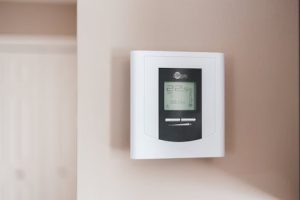Baby Boomers and Smart Homes: Ease of Use and Accessibility
Baby Boomers, defined as those born between 1946 and 1964, are quickly approaching their golden years. As they retire, many are looking for ways to make their lives easier and more comfortable. One trend that is gaining popularity among this generation is the incorporation of smart home technology. These advanced systems offer several benefits for Baby Boomers, including ease of use and enhanced accessibility. In this article, we’ll explore how smart homes cater to the needs of this demographic and why they are becoming a top choice for aging adults.
The Growing Popularity of Smart Homes Among Baby Boomers
Smart homes are no longer just a futuristic concept, but a reality that is rapidly gaining popularity among all generations. A recent study by AARP found that 50% of Baby Boomers are interested in adopting smart home technology, and that number is steadily increasing. So, what makes this generation, in particular, so drawn to smart homes?
One reason is the ease of use. As Baby Boomers age, they may not have the same level of physical abilities as they used to. Smart homes offer a solution by allowing them to control various aspects of their home with just a few taps or voice commands. From adjusting the thermostat to turning off the lights, this technology eliminates the need for manual labor and reduces strain on their bodies.
Furthermore, smart homes cater to the desire for convenience and simplicity. Many Baby Boomers are downsizing as they retire and are looking for ways to simplify their lives. With smart homes, they can streamline their daily tasks and manage their homes more efficiently. For example, they can set automated routines for tasks like watering plants or turning on the coffee maker in the morning. This convenience factor is highly appealing to this generation.
The Accessibility Benefits of Smart Homes for Aging Adults
Another significant aspect of smart homes that appeals to Baby Boomers is the enhanced accessibility they provide. As we age, some simple actions, like reaching for a light switch or bending to adjust a temperature control, can become difficult. Smart homes offer accessible solutions, such as voice commands or motion sensors, to make these tasks easier and more efficient.
In addition, smart homes can also provide a sense of security and peace of mind for both the Baby Boomer and their loved ones. With advanced technology like smart locks and security cameras, family members can remotely monitor their loved one’s home and ensure their safety in case of an emergency. This added layer of security can alleviate concerns and provide a greater sense of independence for aging adults.
Choosing the Right Smart Home Technology for Baby Boomers
As with any technology, there are some considerations to keep in mind when selecting smart home devices for Baby Boomers. One essential factor is compatibility. Smart home technology often requires a hub or a central control system, and it’s essential to choose one that is compatible with other devices in the home. Opting for a system that offers a variety of third-party integrations can also provide more flexibility and convenience.
Final Thoughts
Smart homes offer a range of benefits for Baby Boomers, including ease of use, convenience, enhanced accessibility, and security. With the right technology, this generation can maintain their independence and make their homes more manageable and comfortable. As the popularity of smart homes continues to rise, it’s clear that they are here to stay and will continue to provide valuable solutions for aging adults.











